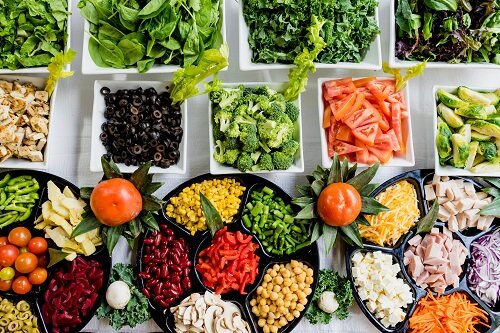Nutritional status plays an important role in maintaining healthy skin. A variety of nutrients support by the health of the skin. As the economy develops, more and more women are beginning to pay attention to and use nutrients to keep their skin healthy and moist. Here are the nutrients needed for 8 healthy skin types.
1. Protein
Protein is an indispensable substance in the skin and a major part of the cell. It can also be considered as the origin of life. Proteins make up some of the human hormones needed for various nucleic acids, antibodies and skin. It can promote the matrix, supply energy to supplement the consumption of metabolism, and maintain the normal osmotic pressure of the capillaries. In the absence of protein, the skin will be pale, dry, aging, dull, and the skin will be severely deficient in protein and malnutrition edema.
2. Lipids
Lipids are composed of fats and their derivatives. Fat can provide heat and essential fatty acids to the body, help the absorption of fat-soluble vitamins, and make the skin elastic. In the absence of lipids, people are prone to fat-soluble vitamin deficiency and the skin loses its elasticity.
3. Sugar
Normal healthy skin has a sugar content of 50%-70%, which is to provide enough energy to the body. Carbohydrates provide enough heat to the body to help the fat burn in the body and help the body's own proteins to be synthesized in the body.
4. Vitamins
Different vitamins have different functions. For example, Vitamin A has the function of protecting skin and mucous membranes and it is one of the main substances for maintaining skin. In the absence of vitamin A, the keratin in the hair follicles embodies, causing the skin to be dry, rough, and even wrinkled.
Vitamin B promotes body metabolism and makes skin soft and smooth.
Vitamin E has anti-oxidation, promotes metabolism, improves skin blood circulation, maintains normal capillary permeability, and prevents skin aging. The lack of vitamin E can cause rough skin, aging and so on.

5. Zinc
Zinc is involved in the synthesis of various enzymes in the body, maintaining the elasticity, arbitrariness, density and smoothness of the skin and mucous membranes. It produces a membrane that supports skin cells, and also reduces UV damage.
6. Iron
Iron is an essential component of hemoglobin. The delivery of oxygen and carbon dioxide in the blood is an important component of the blood. Iron deficiency in the skin can cause anemia, pale skin, dryness, chapped and other symptoms.
7. Water
Water is an important component of the body composition, accounting for 75% of the body weight. The water in the skin accounts for 18-20% of the water in the human body. Most of the skin's water is stored in the dermis. Water is mainly in the body, in tissue fluids and in the blood. If the skin is dehydrated, it will dry and itchy. It also plays a big role in eliminating toxins.
8. Inorganic salts
Inorganic salts contain a certain amount of minerals in the skin, such as sodium chloride, potassium chloride, sodium bicarbonate, and the like. Among them, sodium and potassium are involved in the activity of skin nerves and muscles. If the inorganic capillaries are absent from the skin capillaries, it is likely to cause skin sagging.
Use empty capsules for supplement making now.


